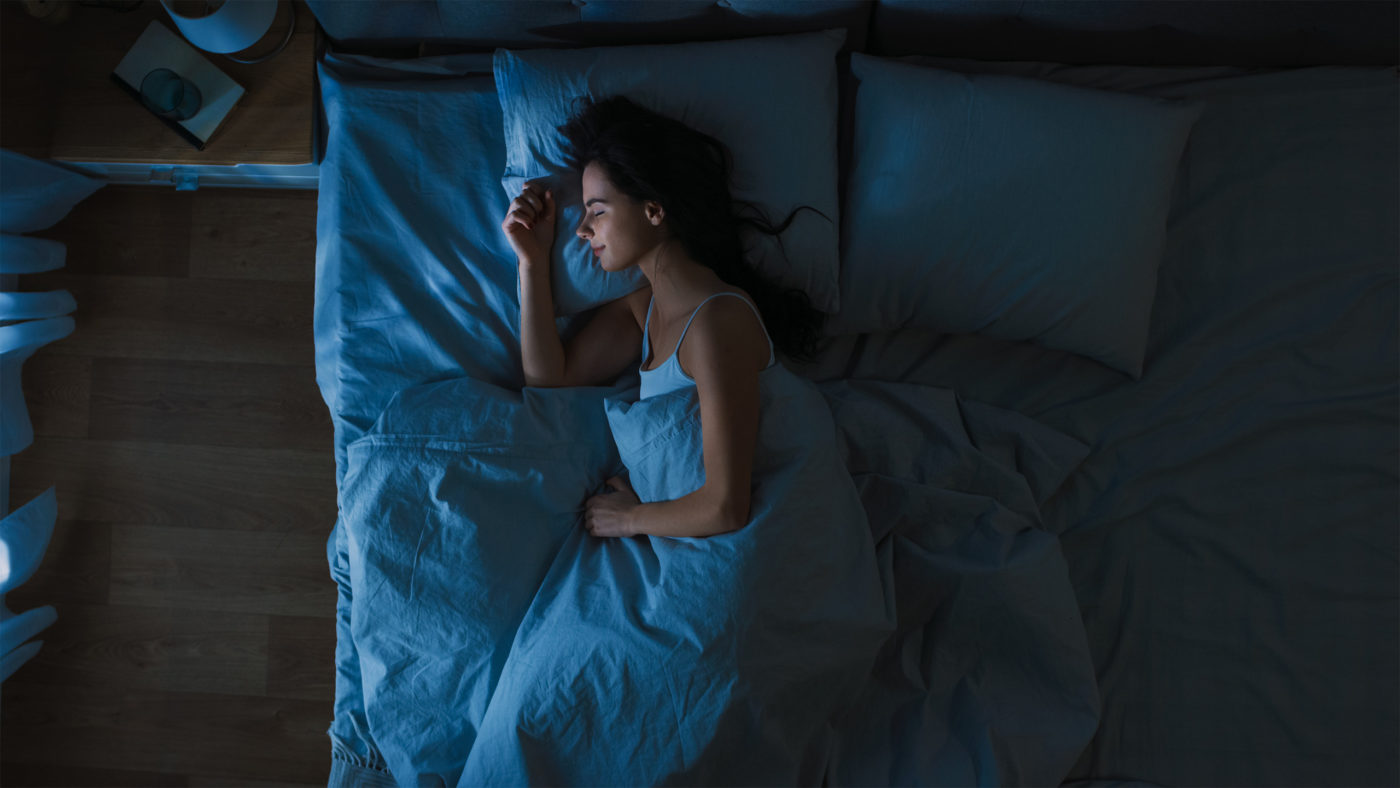
Understanding Sleep and the ECS
August 19, 2020
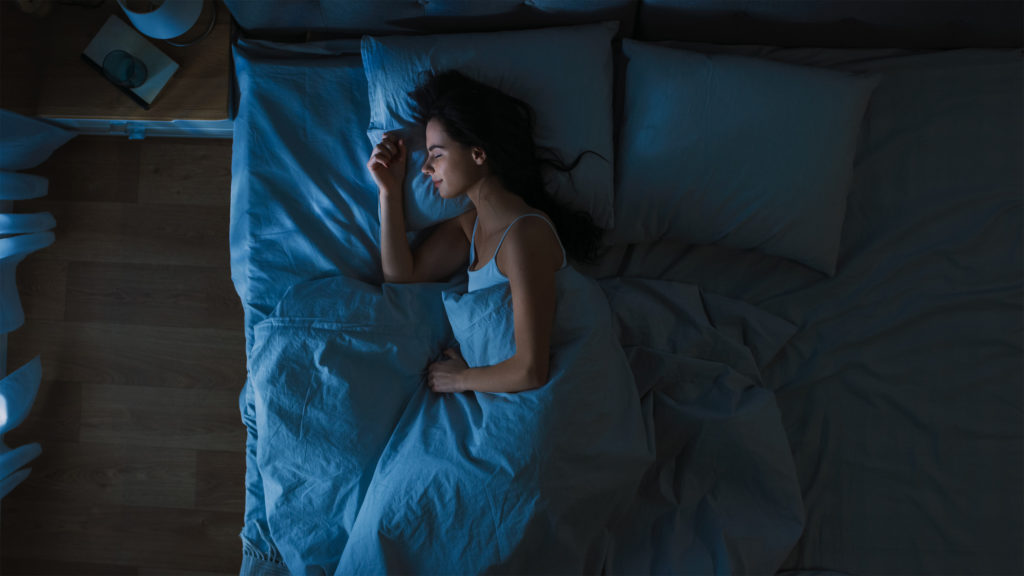
Our post today is brought to you by one of our very own Zilis Ambassadors, Dr. Steven Todd. Dr. Todd is a retired board-certified Oral Implantologist and Dental Anesthesiologist, who served as Adjunct Professor at the Ohio State University School of Dentistry. From 1982-85, he was the 3rd Infantry Division, 3rd Medical Battalion U.S. Army Field Dental Surgeon. Dr. Todd holds a master’s degree in Regenerative Medicine with an emphasis on health & wellness. His private practice focuses on sleeping disorders and dental sleep medicine.
As we begin our journey into sleep and the ECS, let’s start with the basic understanding of the ECS. The ECS has a fundamental job of maintaining balance in many biological processes including appetite, metabolism, and regulation of sleep-wake cycles.1 The ECS may also play a significant role in how we dream,2 influencing what we dream about and how emotionally intense our dreams are. The ECS may also indirectly influence sleep through its work balancing mood, stress, or immunity. So, what can you do if you can’t sleep? Balance your ECS with CBD!

Sleep 101
Let’s review a few basics of sleep first. While you sleep, your body restores the energy expended during the day. When you sleep is generally maintained by your circadian (sir-cade-ian) rhythm. This natural, internal process is what helps regulate your awake and sleep cycles and repeats every 24 hours. It is representative of what a balanced system looks like. We also know that sleep is the number one missing ingredient for a healthier life. It affects every area of our lives and is as important as breathing, eating, and drinking water. You can go about four days without water, 25 days without food, 8-10 minutes without air, and 6-7 days without sleeping. Sleep is necessary to regenerate your mind and body. Getting the right amount of sleep will give you more energy and vitality, may keep you from gaining weight, and may help you lose weight. In the Journal of Science, women reported that a restful sleep was more important than a household income and marital status. Sleep helps the unconscious mind reprogram through complex decisions, and without sleep, cognitive ability is reduced. It affects every organ system and every disease state. Sleep is real healing – emotional, physical and spiritual. Even though sleep has direct impact on our sense of well-being, there is a real problem: 70 million Americans report they have sleeping problems.3
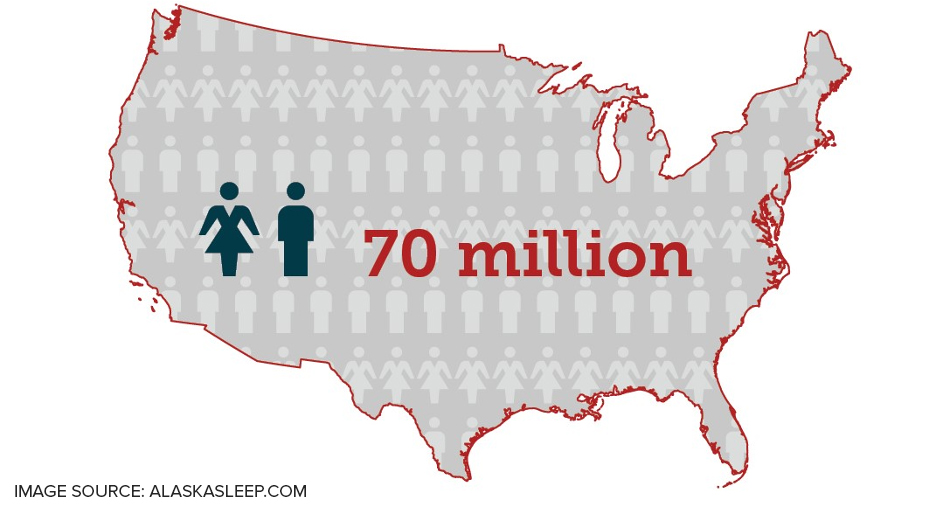
What role does cannabis play?
The topic of sleep is a big one that covers far too much information for a single article. Today, we’ll focus on how hemp-derived cannabis interacts with the body in the realm of sleep.* We know by now that humans have used cannabis in many ways for thousands of years. Scientist have been studying the active compounds in cannabis and have found therapeutic properties to assist with sleep issues. Going to sleep at night and being awake during the day are the natural cycles of our circadian rhythm. When that cycle is disrupted, for whatever reason—shift work, trauma, travel, health issues—you start to suffer. Using hemp-derived CBD products to help improve sleep also recalibrates our circadian rhythm and returns our ECS to balance for optimal health and wellness.*
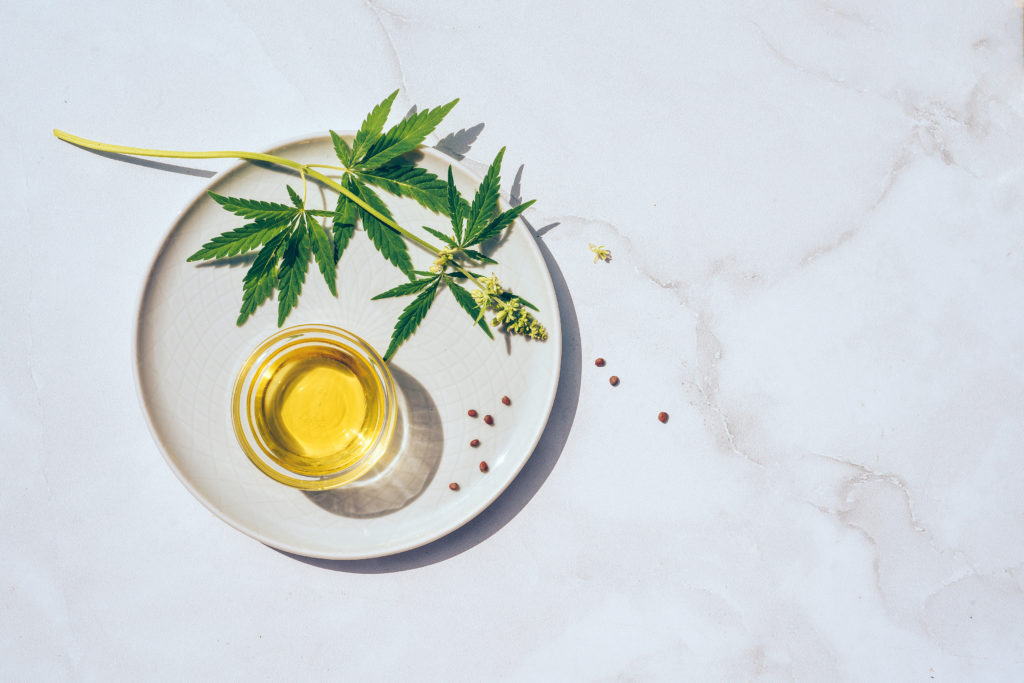
How does CBD affect the cycles and stages of sleep?
There is not a simple answer to that question, but two factors that affect the stages (REM and Non-REM sleep) and the cycle of sleep (circadian rhythm) is 1) the quality of the product and 2) type of cannabis, or chemovar, of your CBD. There is scientific research that broadly addresses how cannabis affects sleep stages and sleep cycles.4 Bringing the ECS into balance with CBD, along with getting plenty of natural light, eating earlier, and making more time for sleep, allows your sleep stages and rhythms to enter a balanced state, providing better sleep.* Using CBD allows the ECS to move away from overuse of endocannabinoids which swings the ECS out of balance in the opposite direction.5 There is also research that addresses the major hemp compounds found in cannabis and how they influence sleep. Several cannabinoids (not just CBD) and botanicals, like lavender or valerian root, have a direct role in improving sleep. Both CBD and CBG have been shown to assist with sleeping problems,6* and CBD has also been shown to promote relaxation.* If you remember the Benefits of CBD post, you’ll know that there has been an abundance of research over the last five decades that supports the therapeutic benefits of CBD to reduce daytime sleepiness and promote alertness.7*
CBG is a newly researched and lesser known cannabinoid. A new area of interest surrounds CBG and its relationship with sleeplessness, stress related disorders, situational stress, and a host of other sleep challenges. CBG is a direct agonist (promoter) of CB2 receptors, which means it really likes binding with CB2 receptors. One amazing find is that CBG interacts with the serotonin receptors of the gut-brain axis. This is important because research has demonstrated the importance of the gut-brain connection for good quality sleep.8
Why do I wake up different hours of the night? Will CBD help?
There are many reasons why people don’t sleep through the night. Some of which are:
- a racing mind;
- muscular or skeletal discomfort;
- feeling emotionally unwell;
- poor eating habits;
- poor sleep habits;
- breathing issues, and
- aging.
Sleep issues are different for everyone. And, because everyone is unique, the 6 hours of sleep one person gets may not be enough for a person who requires 8 hours of restful sleep. We know that CBD can help balance the ECS which can positively impact our sleep, another factor can also help promote restful sleep—vitamins!*
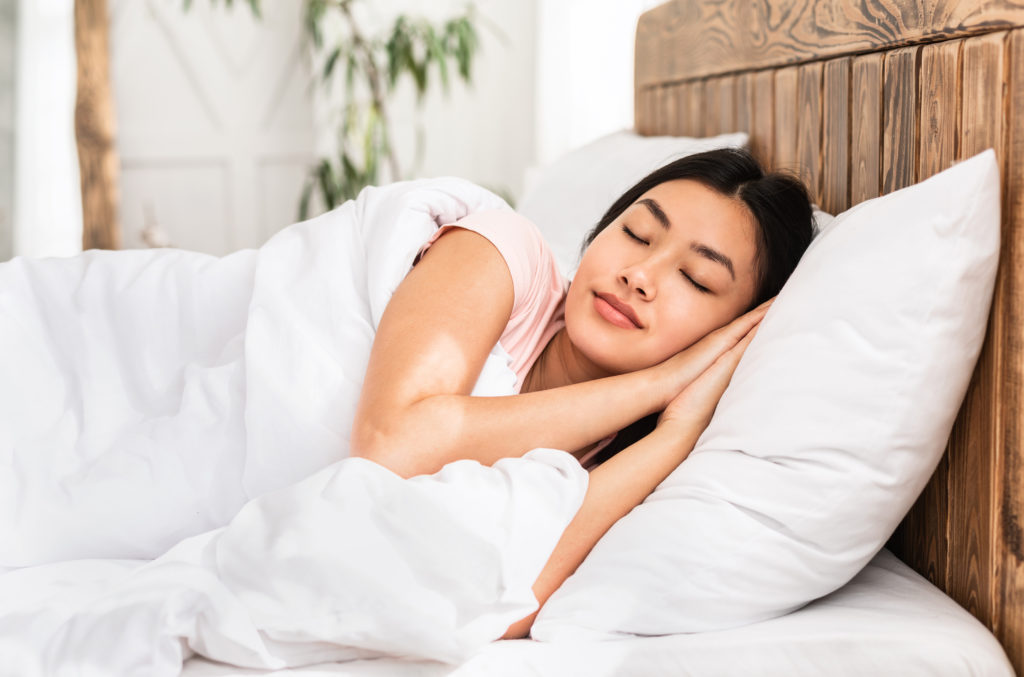
Nowadays, we know people do not have enough of the staple vitamins and minerals to promote healthy sleep. Incorporating vitamins and minerals into our diets can work synergistically with our CBD and ECS to enhance sleep. One of the primary markers in determining sleep health is the level of vitamin D3 (which is actually a parahormone). Vitamin D3 and associated B complex vitamins have a profound effect on sleep quality. As D3 levels are adjusted between 60-80ng/ml, sleep gets better. Research from the National Health and Nutrition Examination Survey (NHANES), compared people getting more than 7 hours of sleep per night with people getting less than 7 hours sleep per night. People with fewer than 7 hours of sleep per night, on average, consumed lower amounts of vitamins A, D3, and B complex vitamins, as well as magnesium, niacin, calcium, zinc, and phosphorus.
In summary, the ECS and overall health and wellness are tightly controlled by sleep. Sleep is our body’s way to repair itself for the next day. These key repair mechanisms have a complex array of neurotransmitters, hormones and healing factors to facilitate a healthy night’s sleep. None of this happens unless the fundamental vitamins and minerals are in place. It is no surprise in today’s intense society that people have challenges with sleeping well. There are still many unknowns, but we do know the ECS and sleep are complex intricate orchestrations of the human body to heal, repair, and regenerate itself on a daily basis.
Stay tuned for our next post from guest writer and Zilis Ambassador Maddie Andry about why glutathione is important and how it can support your overall health.
[1] Tringale, R., & Jenson, C. (2014). Cannabis and Insomnia. O’Shaughnessy’s Society of Cannabis Clinicians, August 31-32. Retrieved August 4, 2020, from https://www.semena-marihuany.cz/img/5E9EC245-448E-17B2-C7CA-21C6BDC6852D.pdf
[2] Murillo-Rodriguez E, Pastrana-Trejo JC, Salas-Crisóstomo M, de-la-Cruz M. The Endocannabinoid System Modulating Levels of Consciousness, Emotions and Likely Dream Contents. CNS Neurol Disord Drug Targets. 2017;16(4):370-379. doi:10.2174/1871527316666170223161908
[3] Smith, S., & Paris, M. (2018, November 13). Sleeping Well in The Age of Stress: Part 2 [Web log post]. Retrieved August 13, 2020, from https://www.alaskasleep.com/blog/sleeping-well-in-the-age-of-stress-0
[4] Pava, M. J., Makriyannis, A., & Lovinger, D. M. (2016). Endocannabinoid Signaling Regulates Sleep Stability. PloS one, 11(3), e0152473. https://doi.org/10.1371/journal.pone.0152473
[5] Hanlon EC, Tasali E, Leproult R, Stuhr KL, Doncheck E, de Wit H, Hillard CJ, Van Cauter E. Sleep Restriction Enhances the Daily Rhythm of Circulating Levels of Endocannabinoid 2-Arachidonoylglycerol. Sleep. 2016 Mar 1;39(3):653-64.
[6] Russon, EB.(2008) Cannabinoids in the management of difficult to treat pain. Therapuetics and Clinical Risk Management, 4(1):245-259. Retrieved from: https://www.ncbi.nlm.nih.gov/pmc/articles/PMC2503660
[7] Murillo-Rodriguez,E et al. (2014). Potential effects of cannabidiol as a wake-promoting agent. Current Neuropharmacology, 12 (3):269-272(4). Retrieved from: http://www.ingentaconnect.com/content/ben/cn/2014/00000012/00000003/art00006
[8] Sharkey, K. A., & Wiley, J. W. (2016). The Role of the Endocannabinoid System in the Brain-Gut Axis. Gastroenterology, 151(2), 252–266. https://doi.org/10.1053/j.gastro.2016.04.015
About Zilis’ Scientific Research & Development Department
Our Scientific Research and Development Department is headed up by Dr. Marielle Weintraub, a hemp industry expert. She holds a master’s and a PhD in Behavioral Neuroscience and is very active in many dietary supplement and hemp industry trade associations, including her role as the current President of the U.S. Hemp Authority. Dr. Weintraub is committed to the continued development of hemp-specific information and testing to fulfill the Zilis mission.
Science posts for Discover are co-researched and co-written by Kelly McGill, Senior Scientific Technical Writer at Zilis. Kelly holds a bachelor’s degree in English and a master’s in Linguistics / TESL. She has been writing science-related content for over 20 years and is an expert in making difficult concepts easy to understand.
Zilis is the creator of UltraCell™, a CBD oil product derived from hemp. Based in Argyle, Texas, a suburb of Dallas-Fort Worth, Zilis is privately held. Visit zilis.com for more information.
SHARE THIS POST
ABOUT THIS BLOG
Discover : The blog with the lifestyle, nutrition, science, and history of the hemp industry.
It’s your go-to for the most up-to-date information on hemp, CBD, dietary supplements, and more! Check it out!

